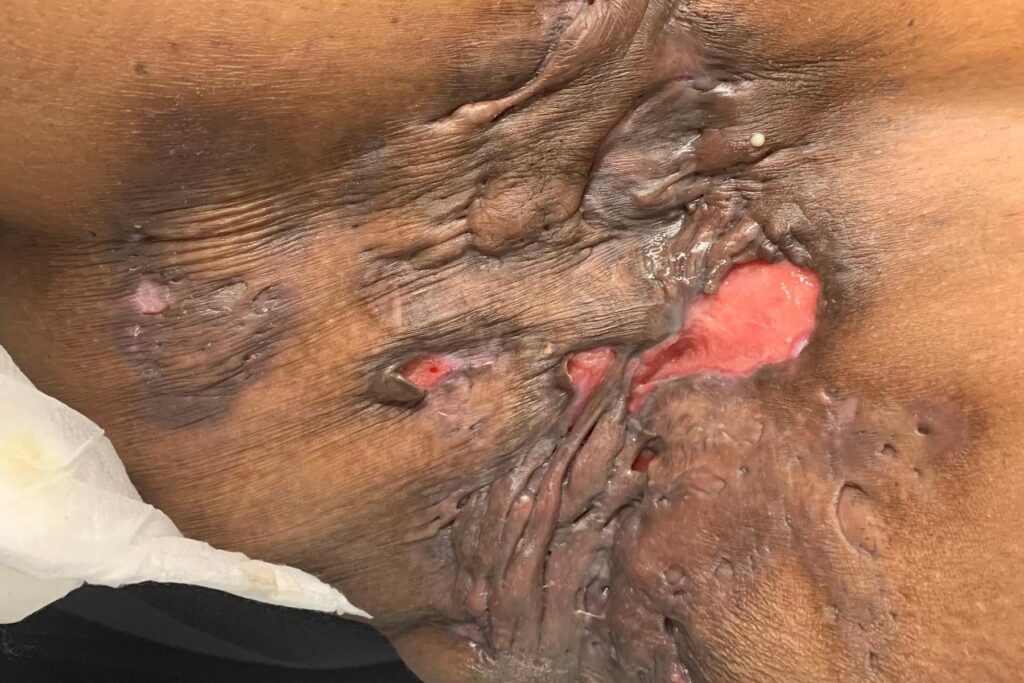Stephanie Cowart
Skin Cancer Disparities in Patients with Skin of Color
The incidence of basal cell carcinoma (BCC), squamous cell carcinoma (SCC), and melanoma is significantly lower in darker skin types. In Black people, BCC is 2000-fold less common, and SCC is 500–1000-fold less common compared to non-Hispanic white people. Melanoma-related mortality rates in the US-based Black population has been declining during the past 20 years. Non-white race is associated with later melanoma detection and lower survival rates. Multiple risk factors have been proposed for skin cancers in skin of color including immunosuppression and previous scaring. More research is needed to understand the primary drivers of skin cancer in skin of color.
The Diversity of Skin
In March 2022, Dr. Callender received the Dermatology Foundation’s Clark W. Finnerud Award presented to an individual who “most skillfully blends clinical practice with writing and teaching dermatology, thereby serving as a mentor and role model.”
An Advocate for Dermatology
The Distinguished Service Medallion is the highest honor the Foundation confers on a colleague in recognition of exemplary leadership and service to the specialty of dermatology.
Mohs for Melanoma
Dr. Bordeaux’s key takeaway message is that Mohs decreases the local recurrence of melanoma and helps reduce the number of re-excisions that patients undergo due to positive margins
Dermatofibrosarcoma
NCCN recommends Mohs as the first-line therapy for DFSP
The Translational Educator
Listening to Dr. Victoria Werth lecture in dermatology is like taking a master class —one where you hang onto every word and commit to developing your career with as high a degree of intention as she has.
A Practice of Care
Dr. William Sawchuk first learned about dermatology when he was a boy and his brother needed treatment for a severe case of acne. The family met with the local dermatologist, a hardship for a blue-collar family, who provided the necessary treatment.
Serving the Underserved, Encouraging the Underrepresented
Hidradenitis suppurativa (HS) was a skin disease Dr. Ginette Okoye had never given much thought to before she entered her first faculty appointment.
When to Suspect Immunodeficiency
Dr. Treat presented three types of clinical scenarios suggesting immunodeficiency: primary skin findings of infections that are unusual, opportunistic, or exuberant; secondary skin findings of eczematous or granulomatous changes; and immunosuppressed groups.





